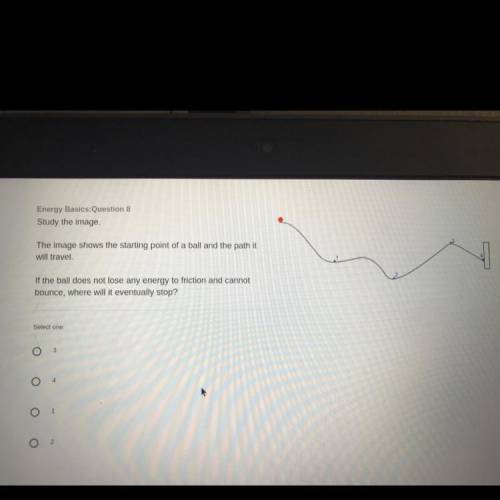
Physics, 03.11.2020 03:10 Superfamicom7748
If the ball does not loose any energy to friction and cannot bounce, where will it eventually stop?


Answers: 1


Other questions on the subject: Physics


Physics, 21.06.2019 20:00, jferdi2005
When using two-wire cable to feed a 240-v appliance that does not require a neutral wire, you should a. mark both ends of the white wire green. b. use the cable as is. c. use only the black wire. d. mark both ends and any exposed area of the white wire black.
Answers: 1

Physics, 22.06.2019 07:00, Angelanova69134
Photoelectrons with a maximum speed of 6.50 x 107 m/s are ejected from a surface in the presence of light with a frequency of 6.75 x 1014hz. if the mass of an electron is 9.10 x 10-31 kg, calculate in joules the maximum kinetic energy of a single electron. 3.84 x 10-15 j 1.92 x 10-15 j 5.92 x 10-23 j 3.07 x 10-16 j
Answers: 1

Physics, 22.06.2019 12:30, clmorcutt420
Apositive charge moves in the direction of an electric field. which of the following statements are true? check all that apply. check all that apply. 1.the potential energy associated with the charge decreases. 2. the electric field does positive work on the charge. 3. the electric field does negative work on the charge. 4. the potential energy associated with the charge increases. 5. the electric field does not do any work on the charge. 6. the amount of work done on the charge cannot be determined without additional information.
Answers: 1
You know the right answer?
If the ball does not loose any energy to friction and cannot bounce, where will it eventually stop?...
Questions in other subjects:



Mathematics, 06.10.2019 03:30









